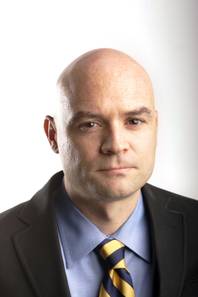Friday, Jan. 11, 2013 | 2 a.m.
View more of the Sun's opinion section

J. Patrick Coolican
Sun coverage
We often hear critiques of Nevada’s tax system — that it is unstable and at the mercy of boom-and-bust cycles, that it relies too heavily on the tourism and development industries.
But we rarely hear about our tax system’s biggest problem: It’s regressive, meaning the poor pay a bigger portion of their income in taxes than the middle class, and the middle class pay more than the rich.
So I was heartened to hear former state Sen. Sheila Leslie emphasize this point in a speech Wednesday to the Progressive Leadership Alliance of Nevada in advance of Gov. Brian Sandoval’s State of the State address and the upcoming legislative session.
“What if we were to tax the rich as much as the poor in our state?” she said.
Indeed, according to a 2009 analysis released by the Institute on Taxation & Economic Policy, the richest 1 percent of Nevadans pay an effective state and local tax rate of 1.6 percent while the poorest 20 percent of Nevadans paid 8.9 percent.
The middle 60 percent pay 6.1 percent in state and local taxes.
Why does our tax system weigh down the backs of the middle class and the poor?
Because we rely heavily on the sales tax. It's the largest single revenue source for the general fund — and it is by definition regressive. A person who earns $500,000 per year, for instance, will spend only a small fraction on taxable goods. Their other money is either saved and invested or goes to pay for services, such as landscaping or private tutoring, which are not subject to sales taxes.
A poor person, by contrast, may make $15,000 and be forced to spend nearly all of it to survive, with much of the money spent on taxable goods. Hence the disparity.
A middle-class resident falls somewhere in the middle.
The injustice is exacerbated because the poorest children have less opportunity to rise into the middle class — once considered an inarguable plank of the social contract — because they often attend mediocre, underfunded schools.
A class war? You bet there is, and in Nevada, the rich are winning in a landslide.
Any Nevada tax reform proposal that doesn’t address this unjust disparity is not even worth discussing.
Of course, the easiest method for tax equity would be an income tax. If you don’t want the rich to pay more, fine; everybody could pay the same percentage of their income. A flat tax. Conservatives love this at the federal level, so why not here in Nevada?
In Nevada, however, the suggestion of an income tax tends to be treated like a ribeye at a convention of vegetarians. Still, it’s the best solution.
Barring that, Leslie recommended the next best thing: taxing corporations that are getting something pretty close to a free ride.
“Nevada is one of three states that do not tax corporate profits," she said. "What if these highly profitable mega-corporations paid a nominal percentage of their profits in taxes to Nevada like they do in other states?” A good question.
Of course, Nevada’s status as a tax haven for corporations has led to widespread prosperity here, right? Oh, guess not.
Leslie also advocated raising taxes on gold mining companies, which enjoy some of the most favorable tax treatment in the country, if not the world, on a nonrenewable resource that can only be found in a handful of places, including Nevada.
I often hear from lobbyists for mining companies and other corporate interests that these ideas wouldn’t really solve our revenue problem or amount to enough money to properly fund our schools. Perhaps, but so what? It would get us part of the way there, so it’s worth doing.
But again, let’s put aside the toxic question of tax increases and focus instead on tax fairness. Assume the same level of revenue. Why should the poor sacrifice more than the rich?
Sandoval has made it clear he has no intention of doing anything about the rank unfairness of our tax system.
I’ll be happily surprised if the Democrats offer a forceful alternative, but I wouldn’t count on it. They usually answer to the same masters.
In Leslie’s words, “Nothing is more powerful in Nevada than the gambling, mining and banking cabal of lobbying interests and their lawmaker friends ...”

Join the Discussion:
Check this out for a full explanation of our conversion to the LiveFyre commenting system and instructions on how to sign up for an account.
Full comments policy